Transcatheter Interventions Online 2024 - On Demand
Published: 20 March 2024
-
Views:
 2782
2782
-
Likes:
 7
7
-
Views:
 2782
2782
-
Likes:
 7
7
-
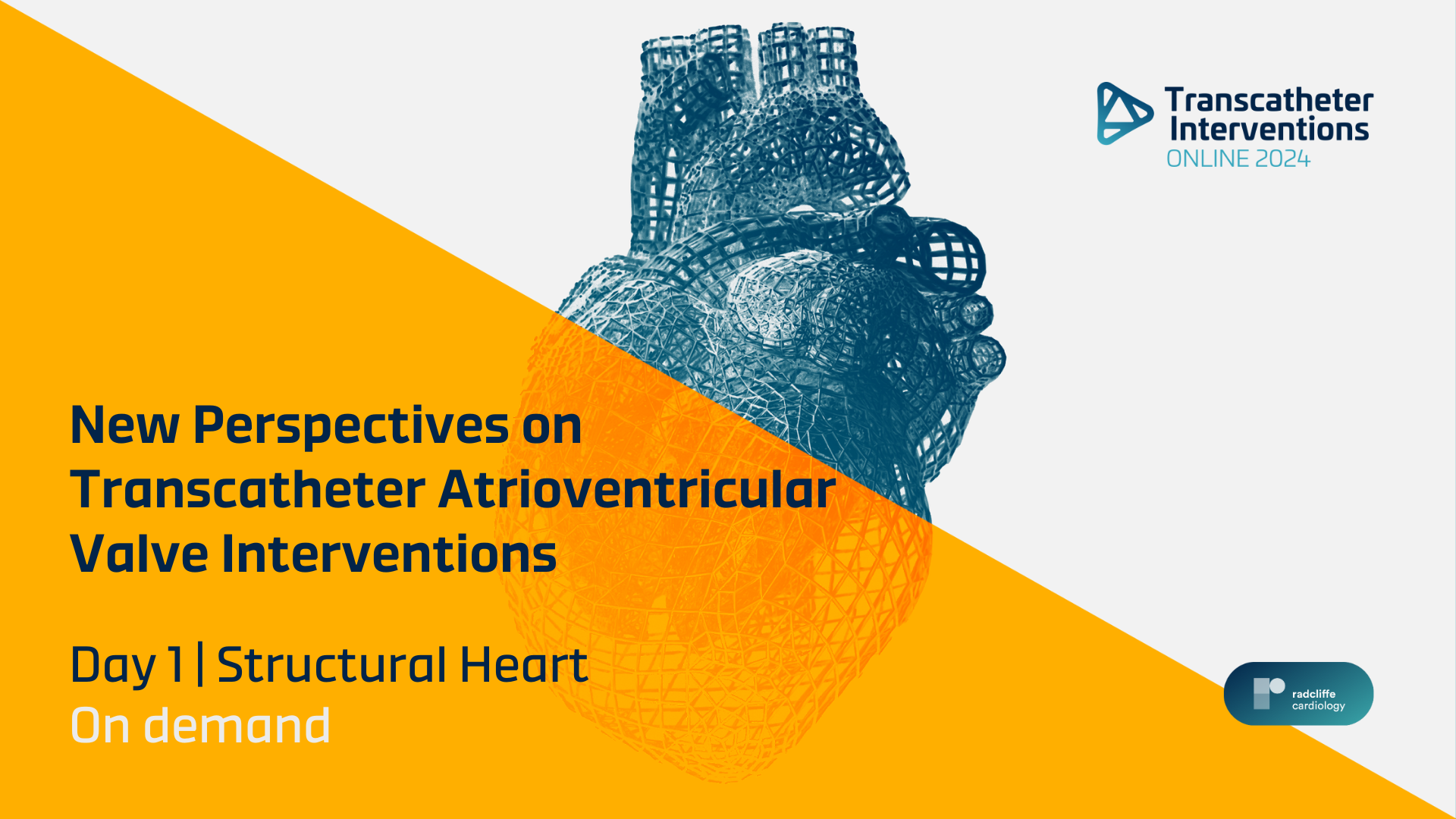 Up Next
Up Next -
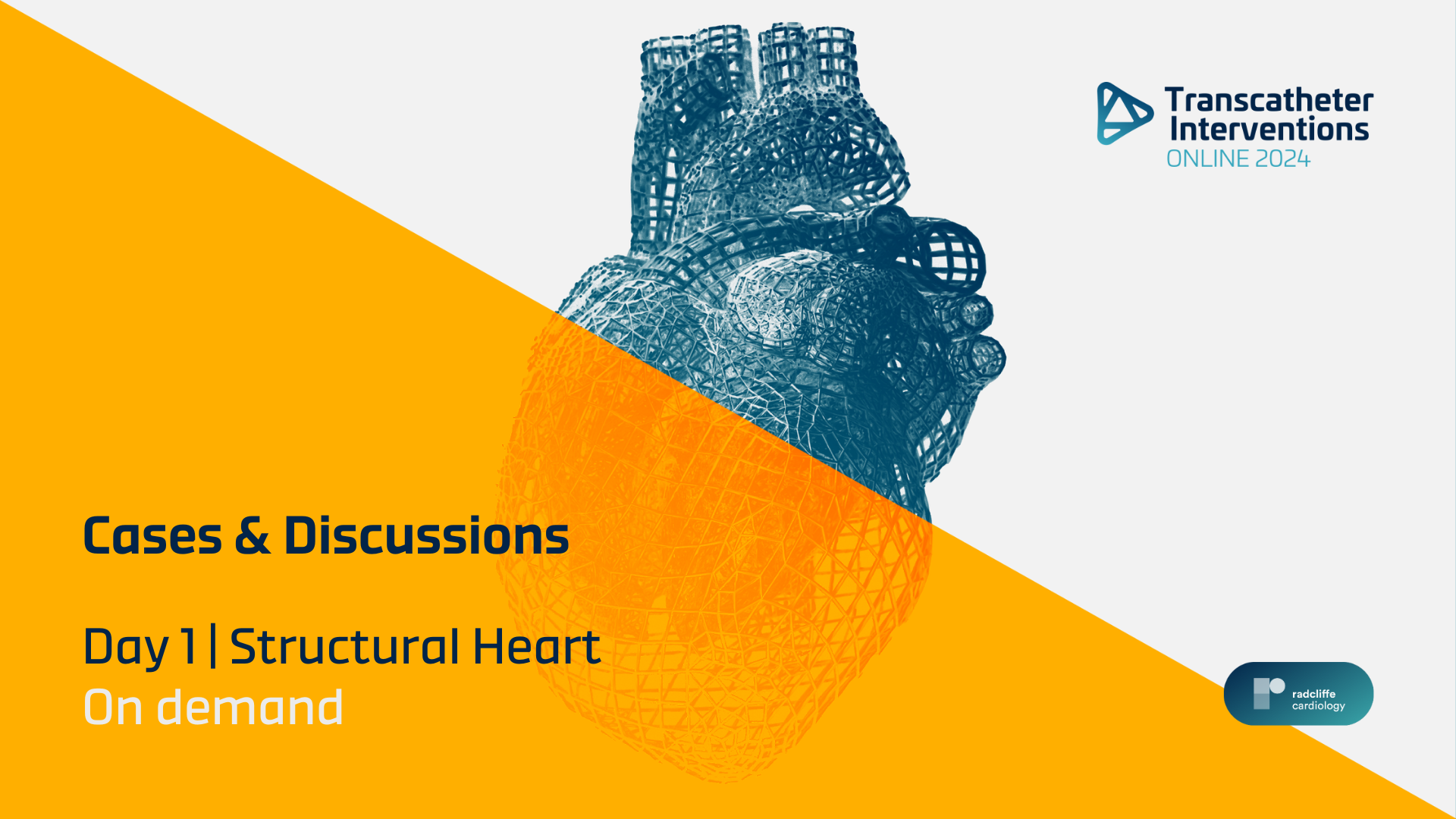 59m 33sPart 1 | Session 3 Session 1.2 Live Cases & Discussions
59m 33sPart 1 | Session 3 Session 1.2 Live Cases & Discussions -
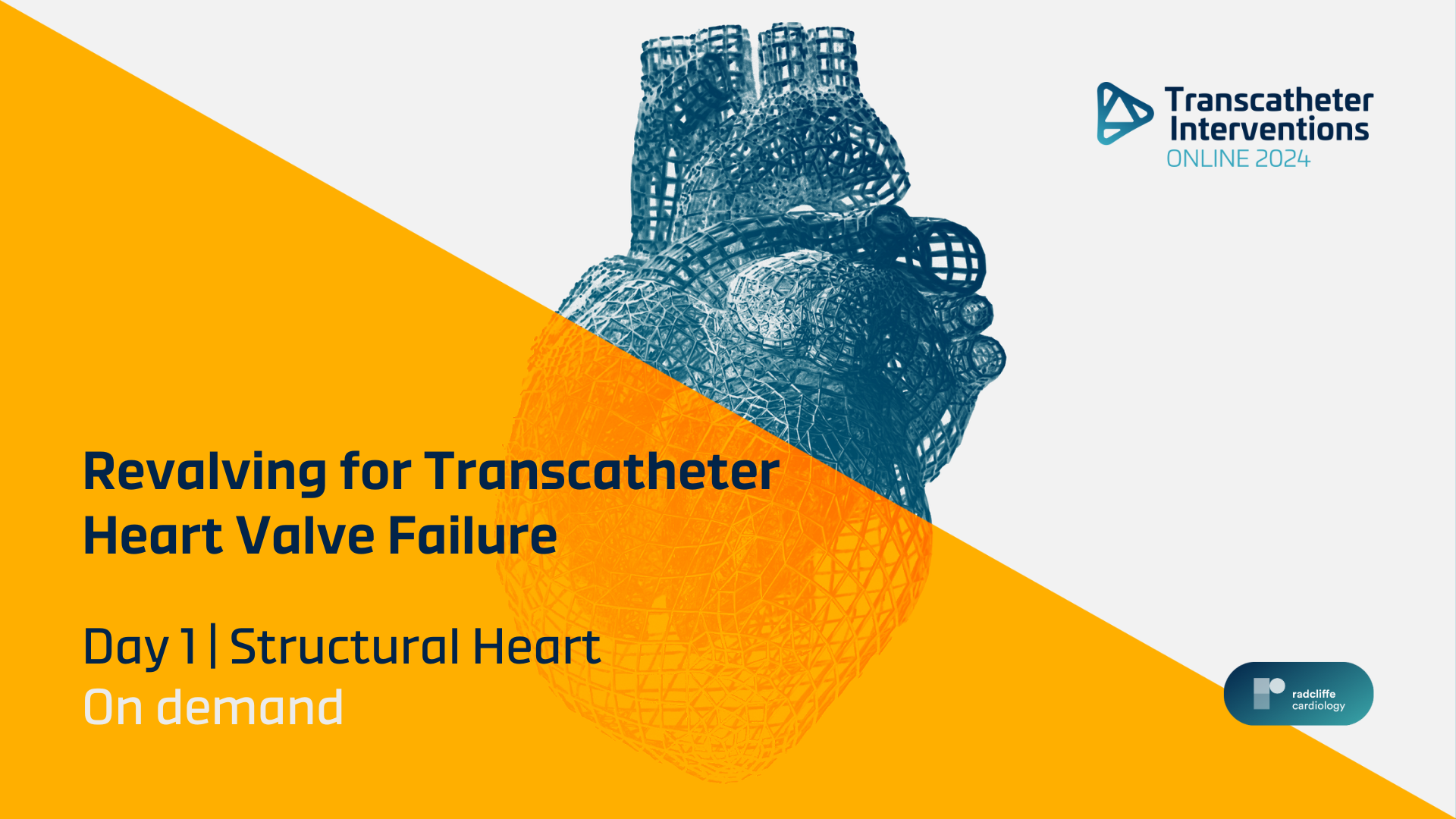 39m 31sPart 1 | Session 4 Session 1.3: Revalving for Transcatheter Heart Valve Failure
39m 31sPart 1 | Session 4 Session 1.3: Revalving for Transcatheter Heart Valve Failure -
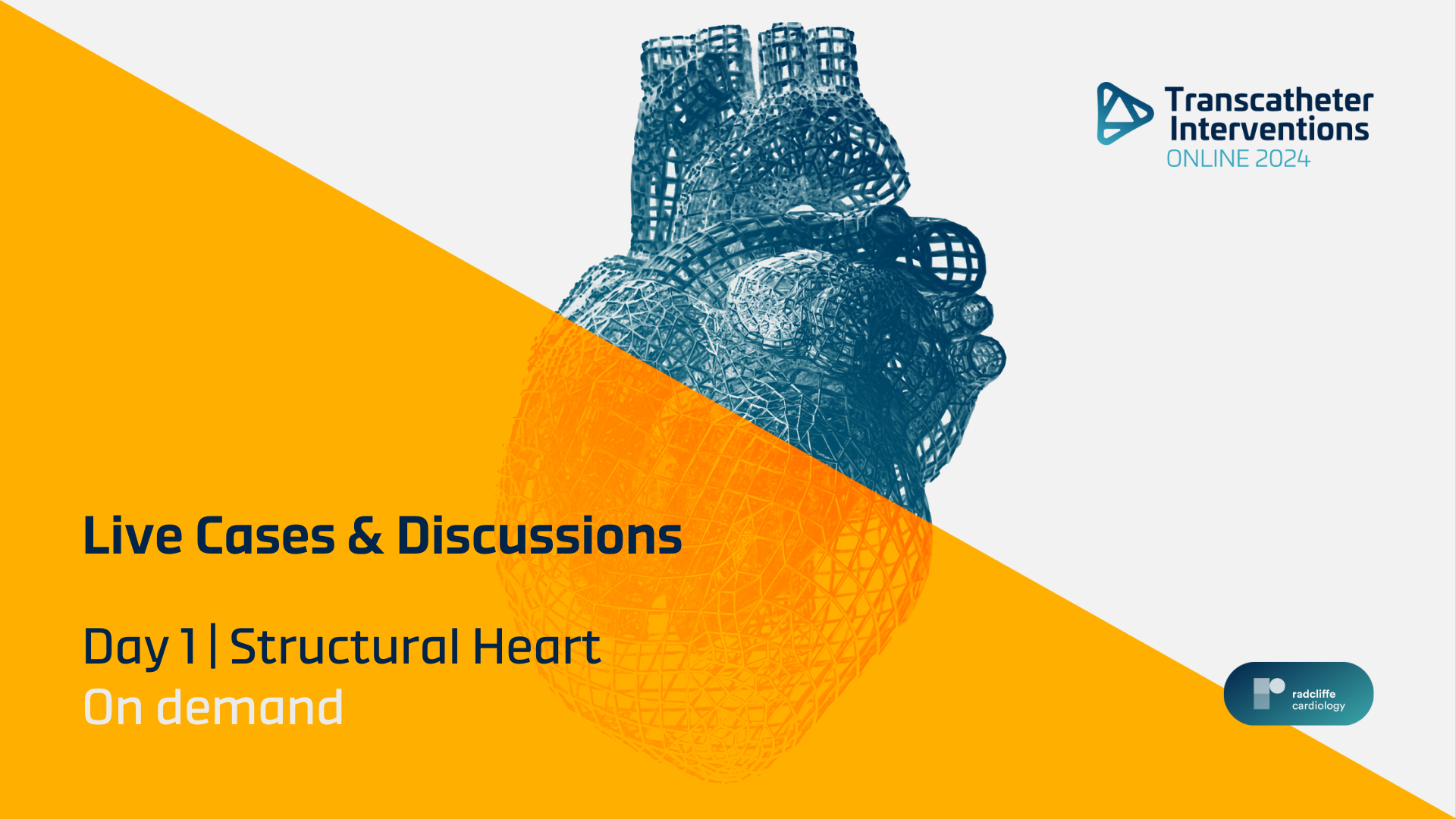 50m 48sPart 1 | Session 5 Session 1.4: Live Cases & Discussions
50m 48sPart 1 | Session 5 Session 1.4: Live Cases & Discussions -
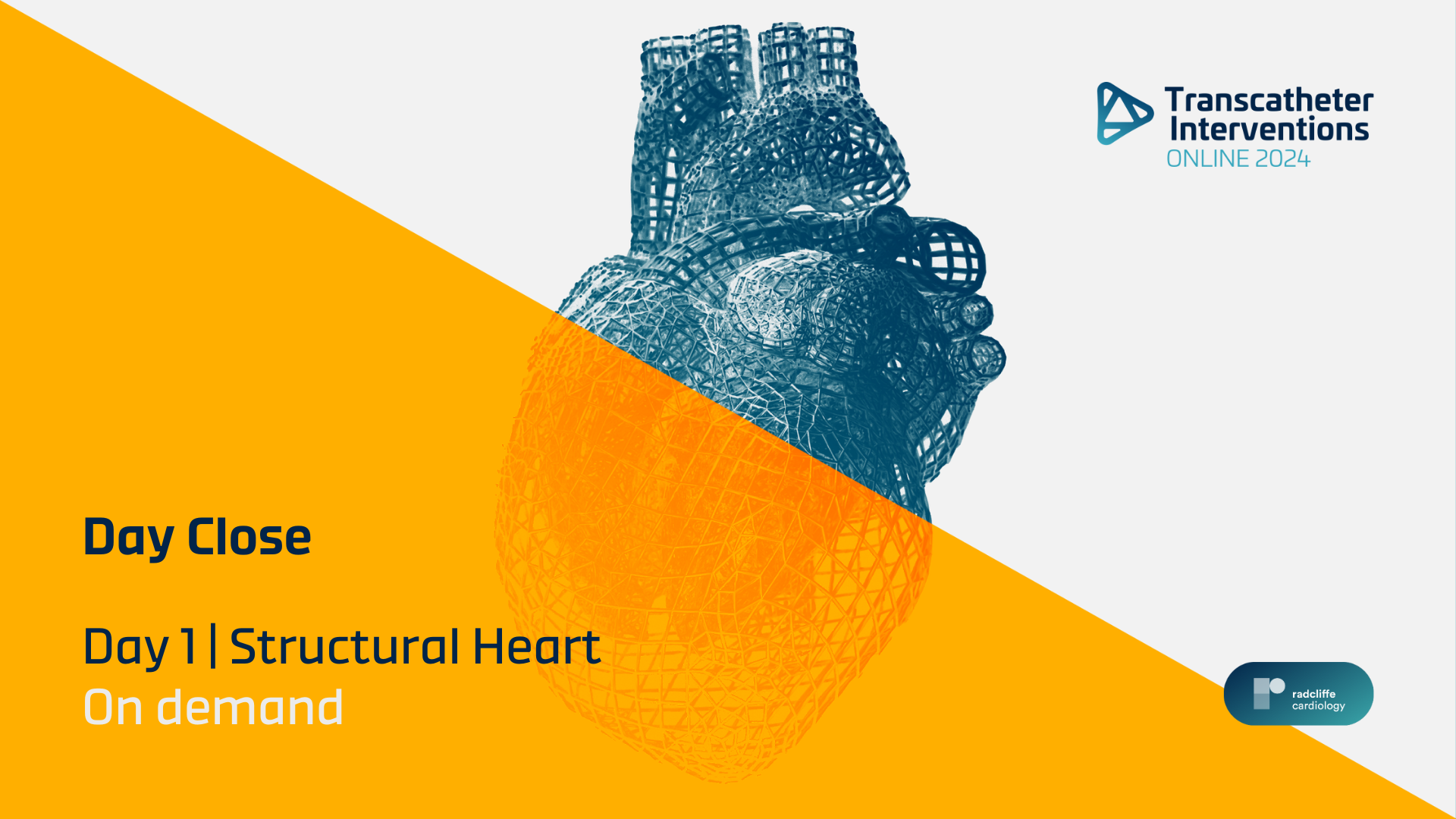 1m 46sPart 1 | Session 6 Day One Close
1m 46sPart 1 | Session 6 Day One Close
-
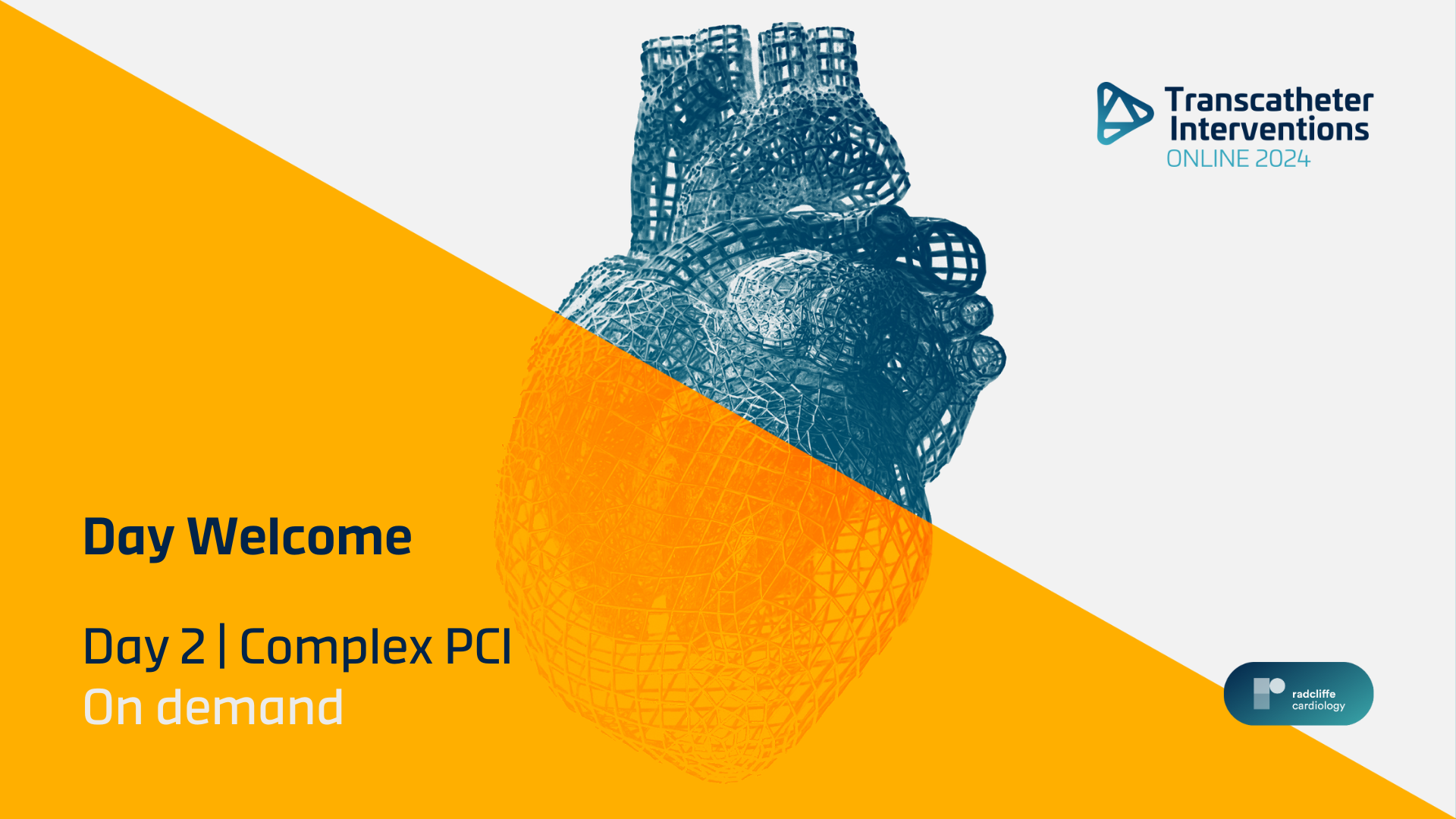 3m 9sPart 2 | Session 1 Day Welcome: Complex PCI
3m 9sPart 2 | Session 1 Day Welcome: Complex PCI -
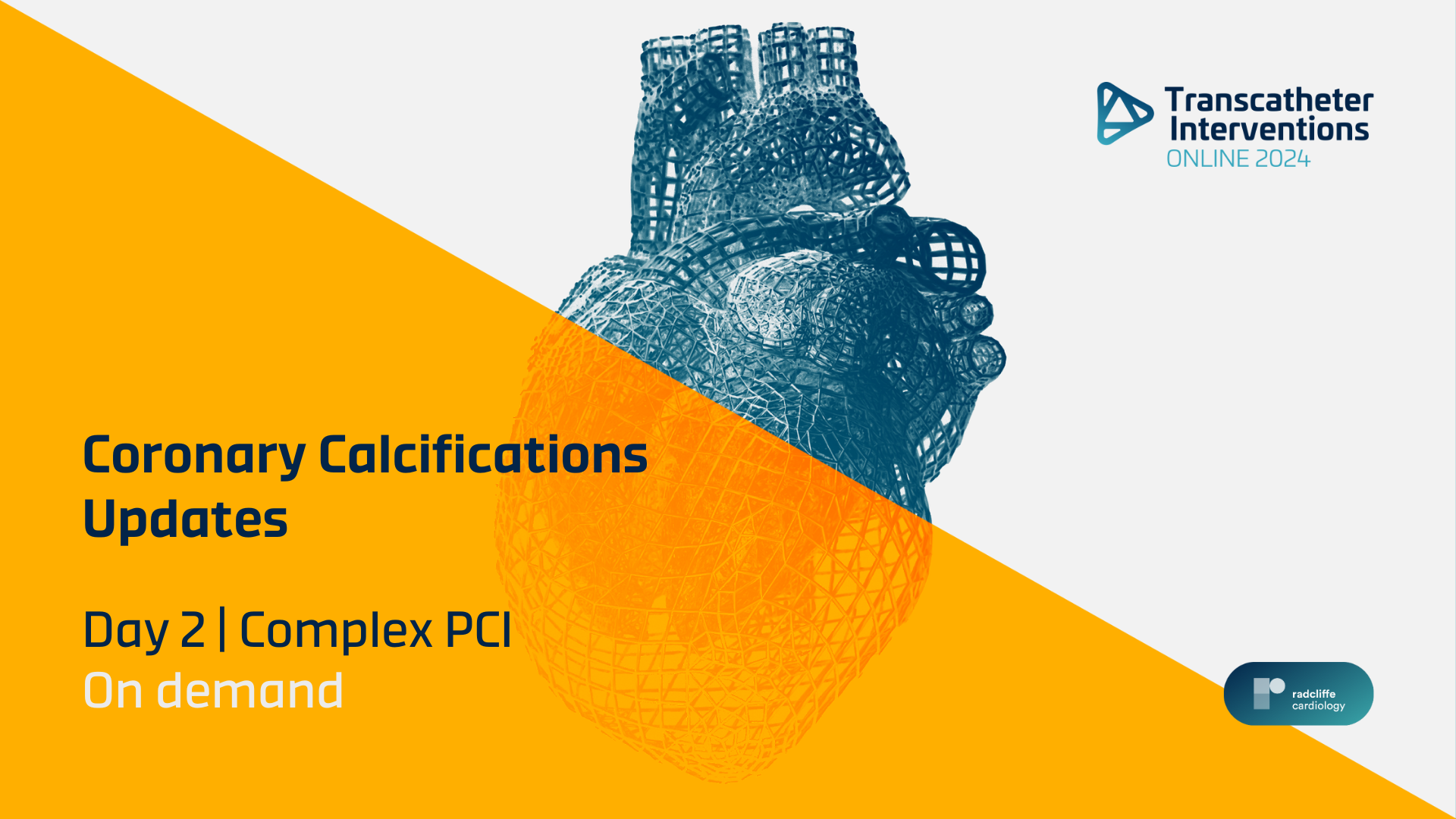 51m 36sPart 2 | Session 2 Session 2.1: Coronary Calcifications Updates
51m 36sPart 2 | Session 2 Session 2.1: Coronary Calcifications Updates -
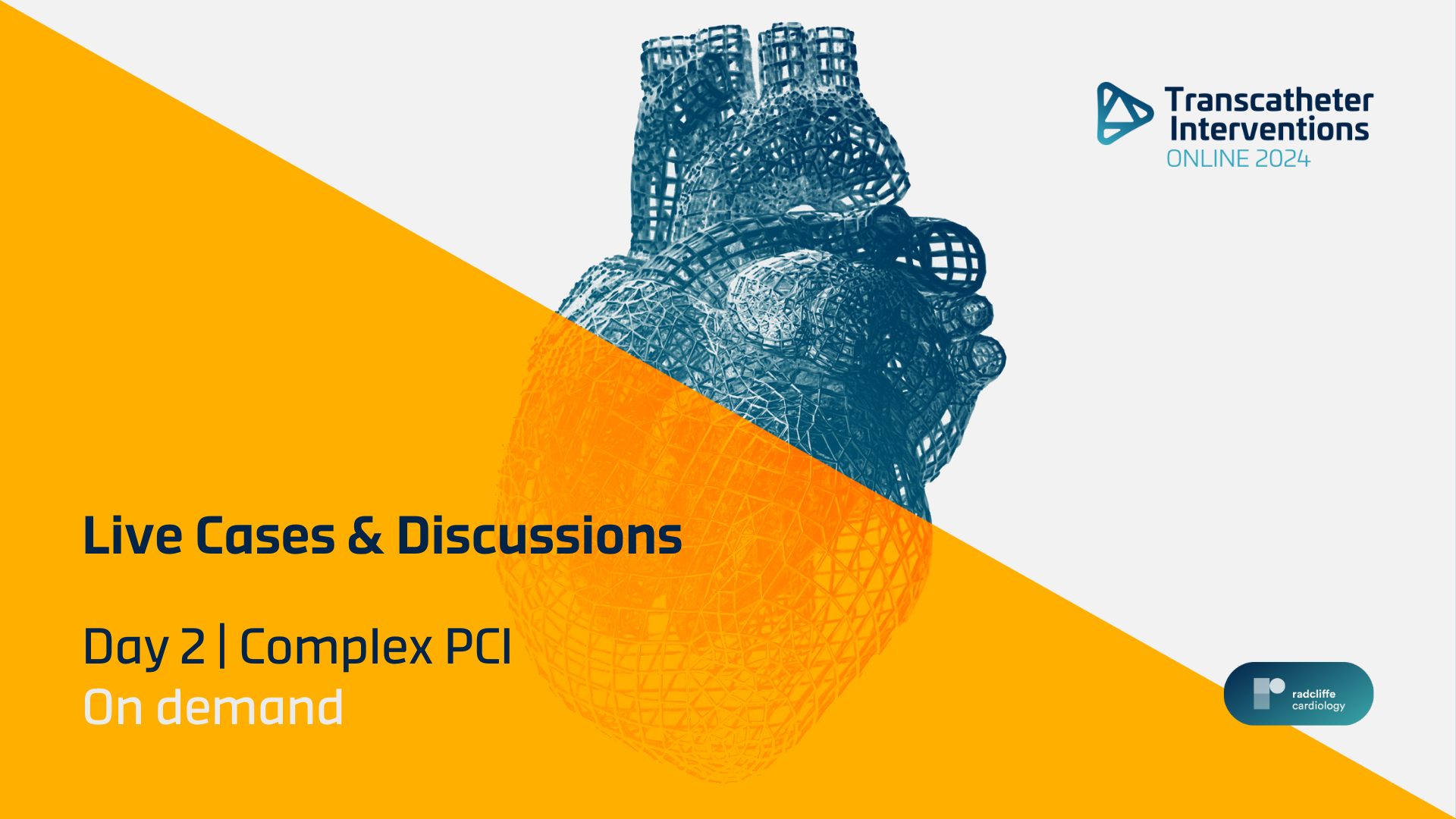 1h 5m 33sPart 2 | Session 3 Session 2.2: Live Cases & Discussions
1h 5m 33sPart 2 | Session 3 Session 2.2: Live Cases & Discussions -
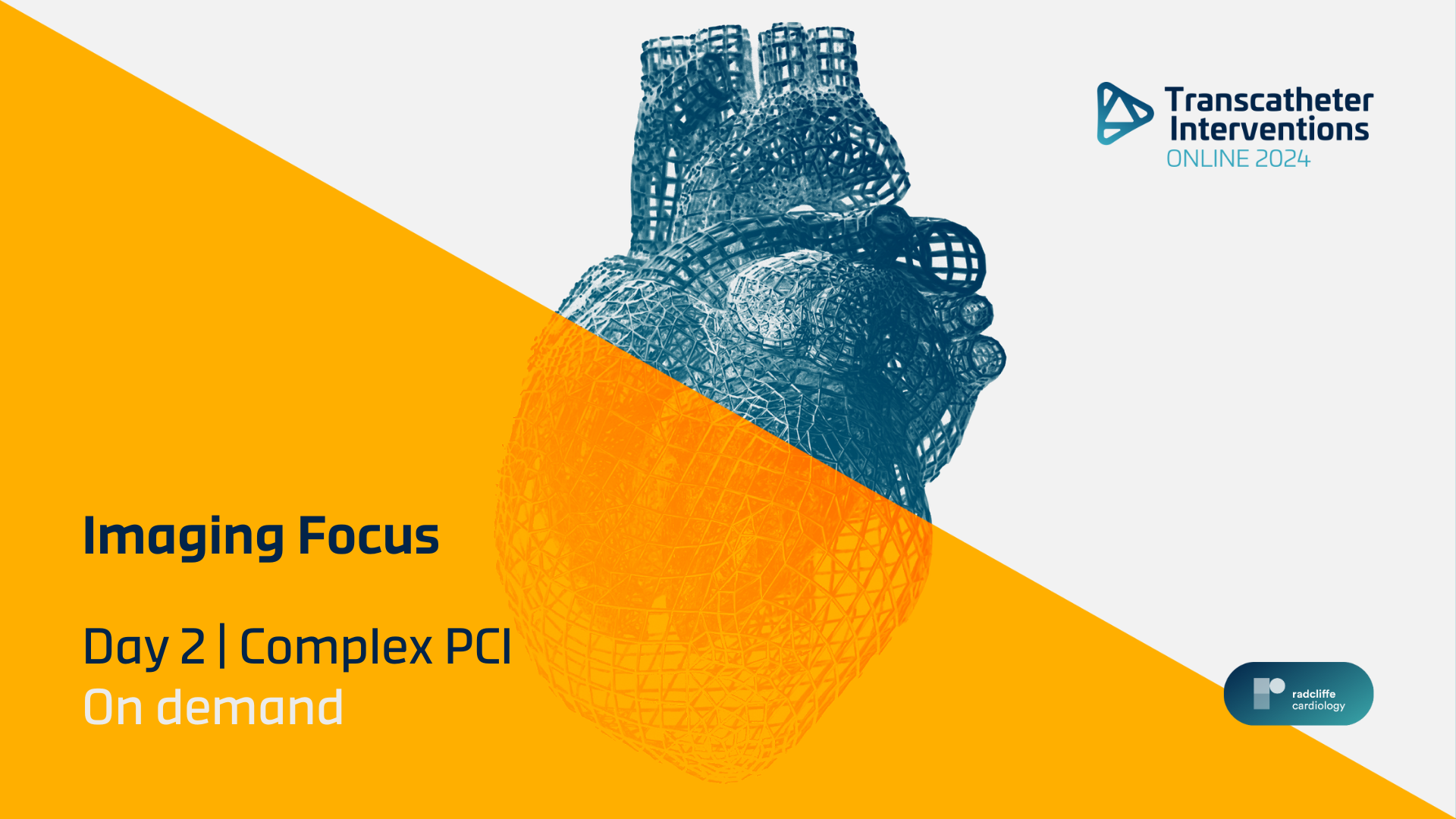 58m 49sPart 2 | Session 4 Session 2.3: Imaging Focus
58m 49sPart 2 | Session 4 Session 2.3: Imaging Focus -
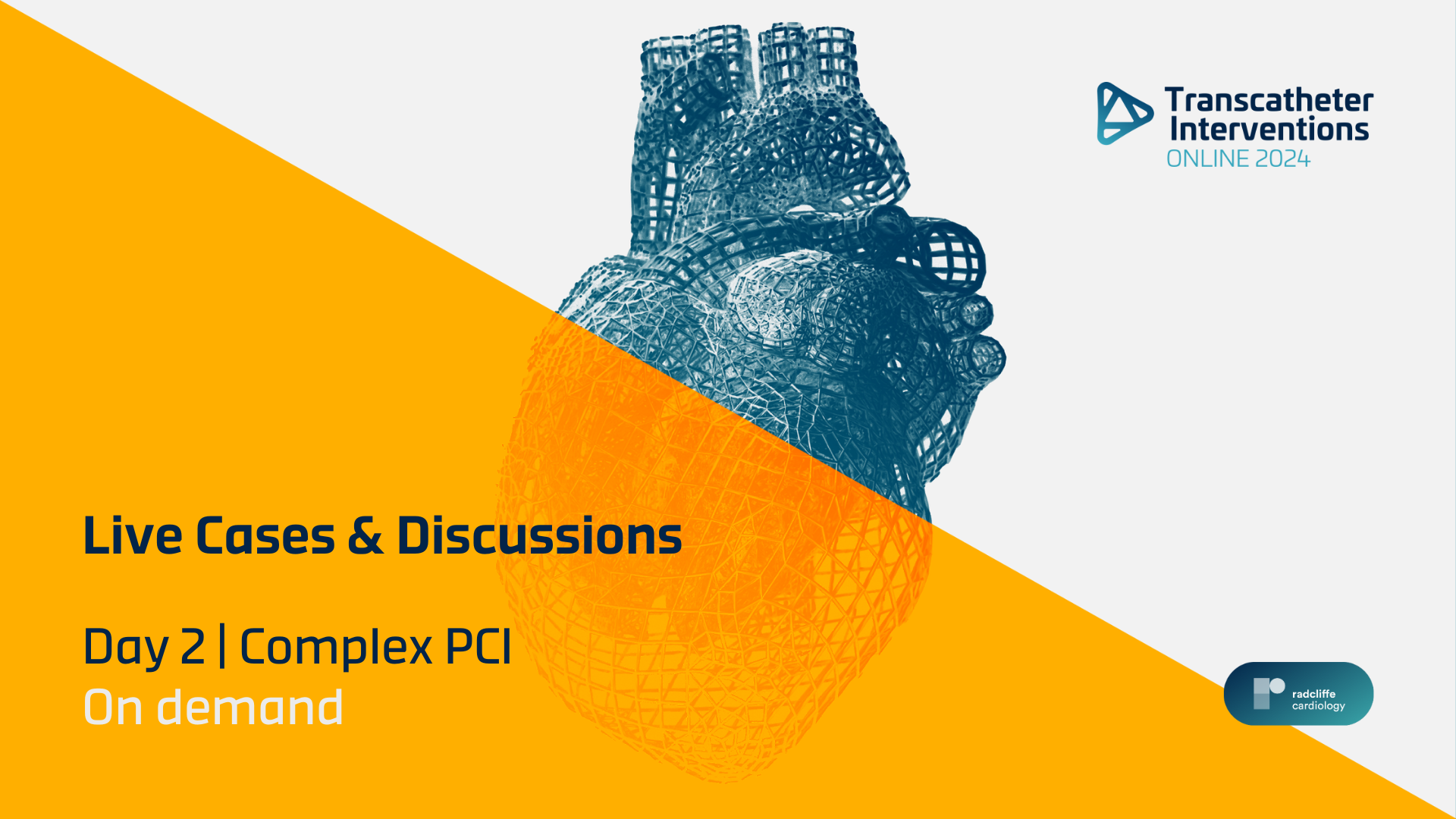 1h 5m 56sPart 2 | Session 5 Session 2.4: Live Cases & Discussions
1h 5m 56sPart 2 | Session 5 Session 2.4: Live Cases & Discussions -
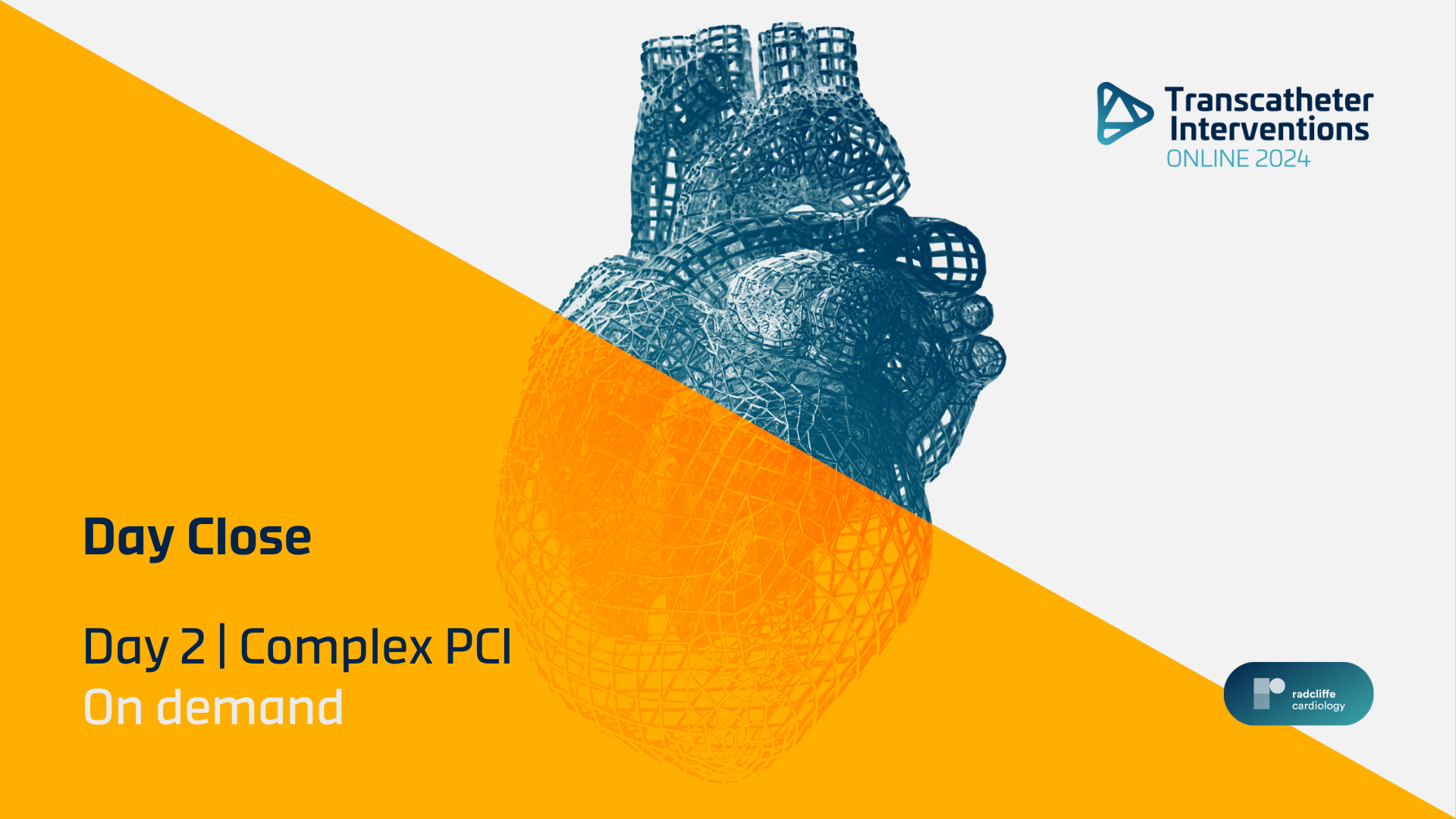 3m 57sPart 2 | Session 6 Day Two Close
3m 57sPart 2 | Session 6 Day Two Close
-
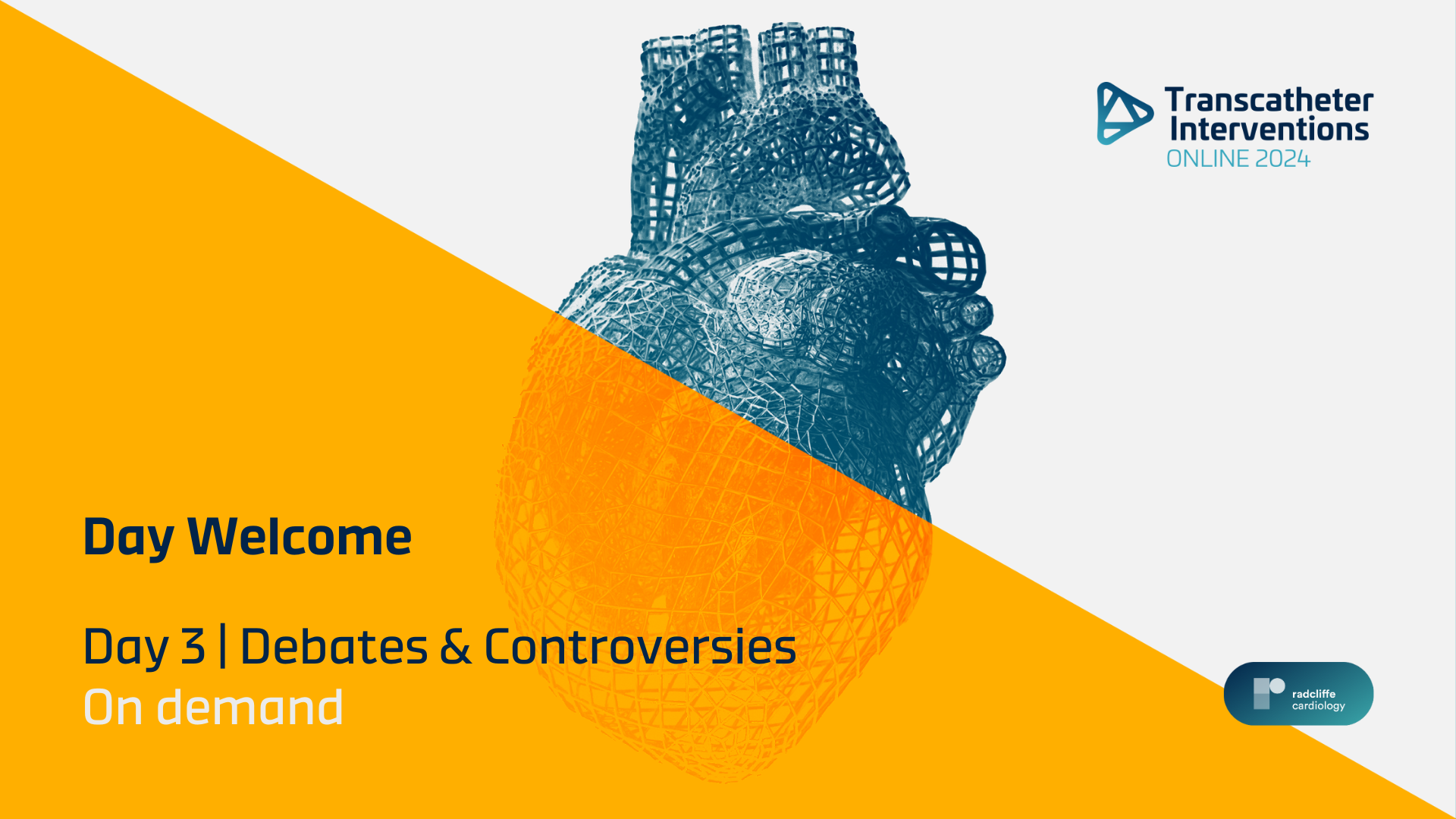 2mPart 3 | Session 1 Day Welcome: Debates & Controversies
2mPart 3 | Session 1 Day Welcome: Debates & Controversies -
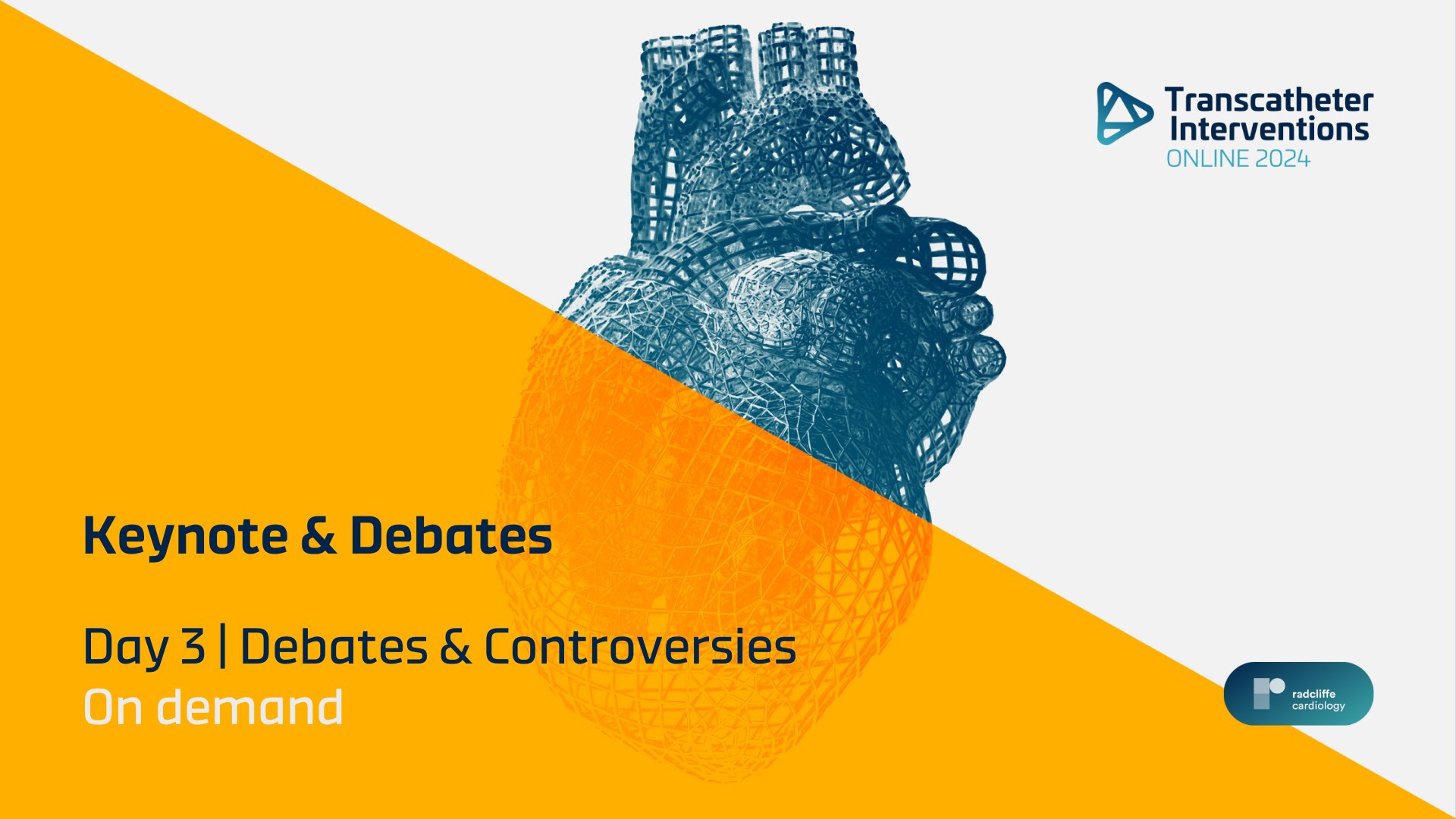 1h 1m 13sPart 3 | Session 2 Session 3.1: Keynote & Debates
1h 1m 13sPart 3 | Session 2 Session 3.1: Keynote & Debates -
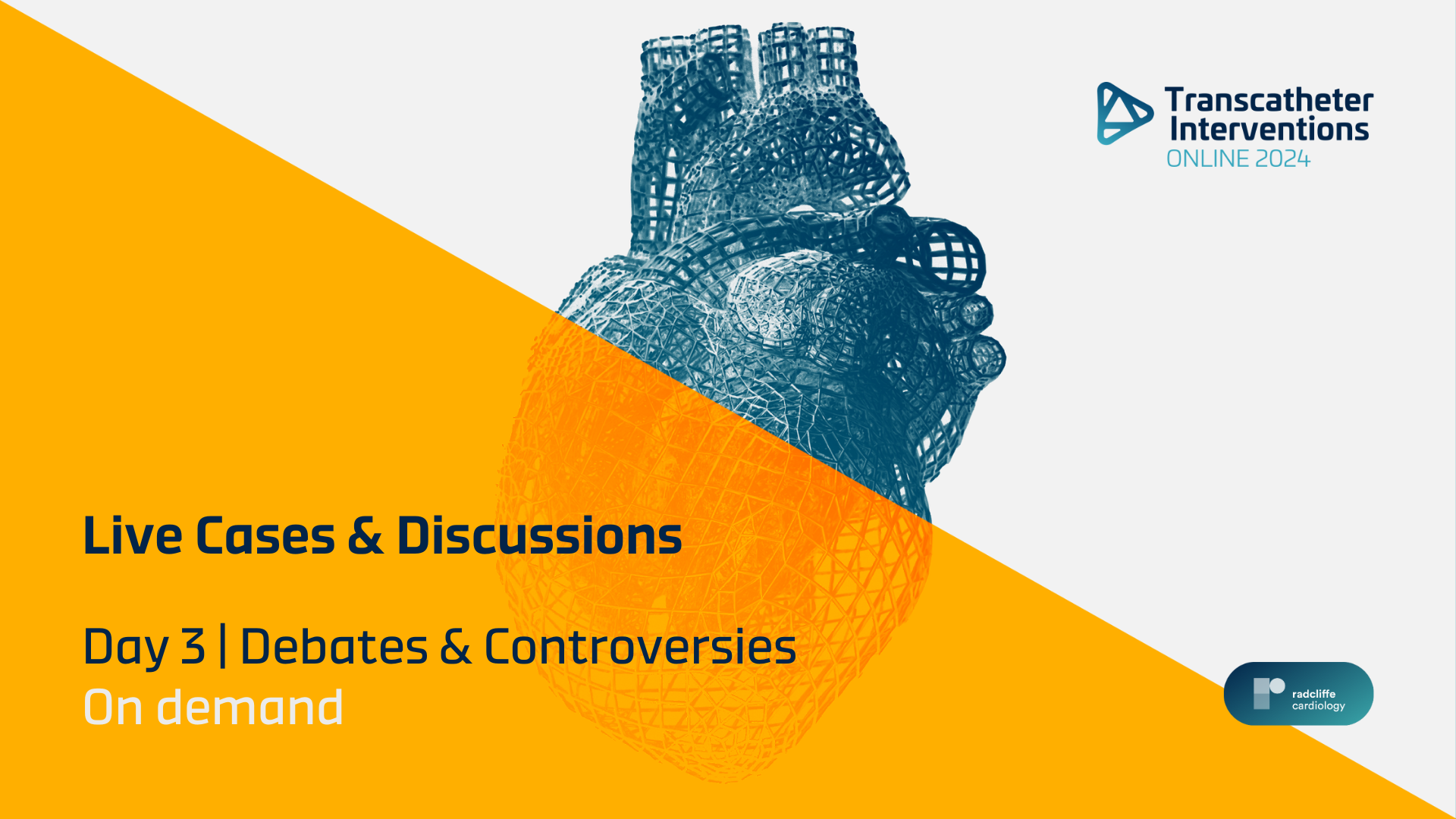 55m 15sPart 3 | Session 3 Session 3.2: Live Cases & Discussions
55m 15sPart 3 | Session 3 Session 3.2: Live Cases & Discussions -
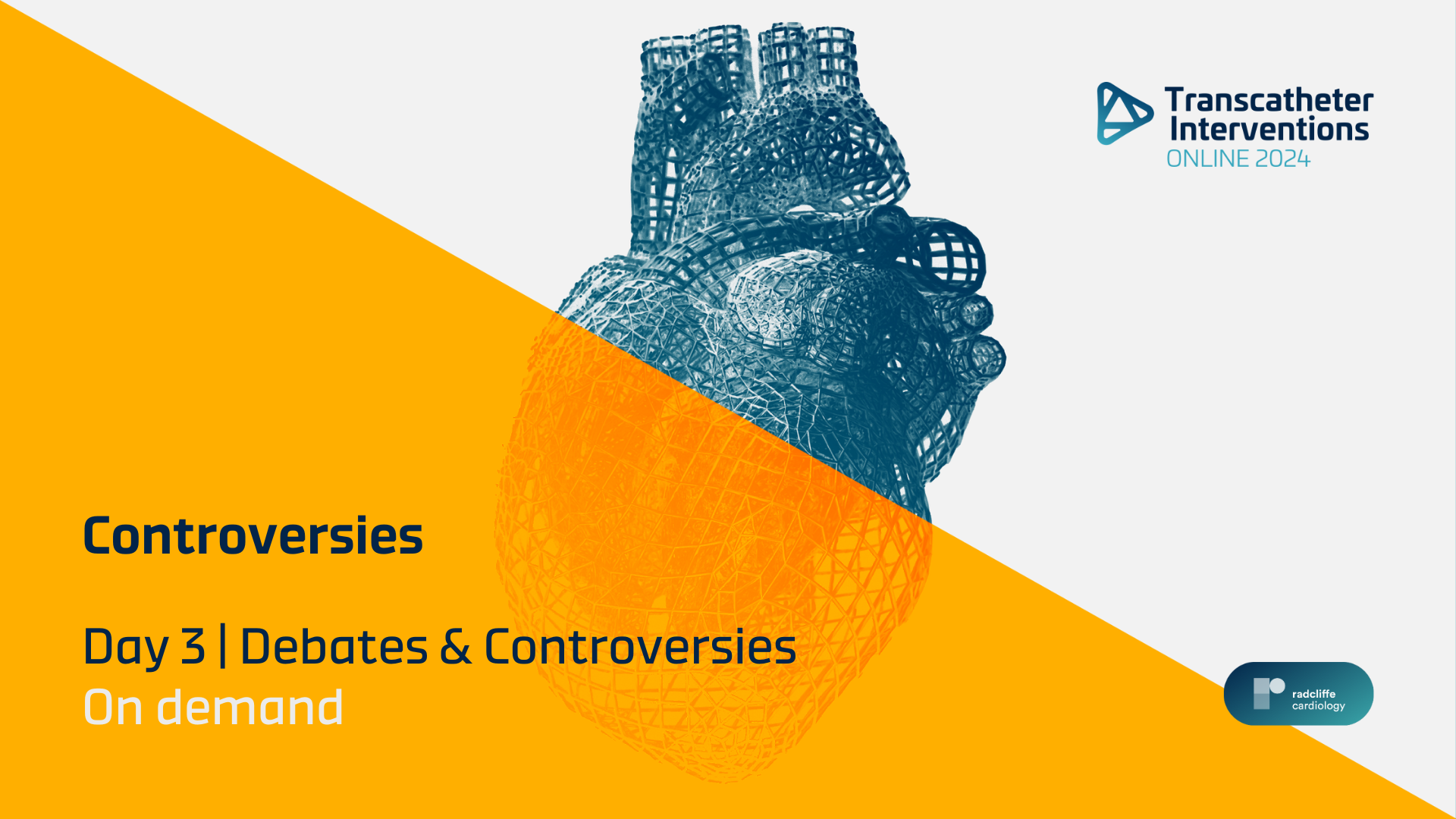 59m 46sPart 3 | Session 4 Session 3.3: Controversies
59m 46sPart 3 | Session 4 Session 3.3: Controversies -
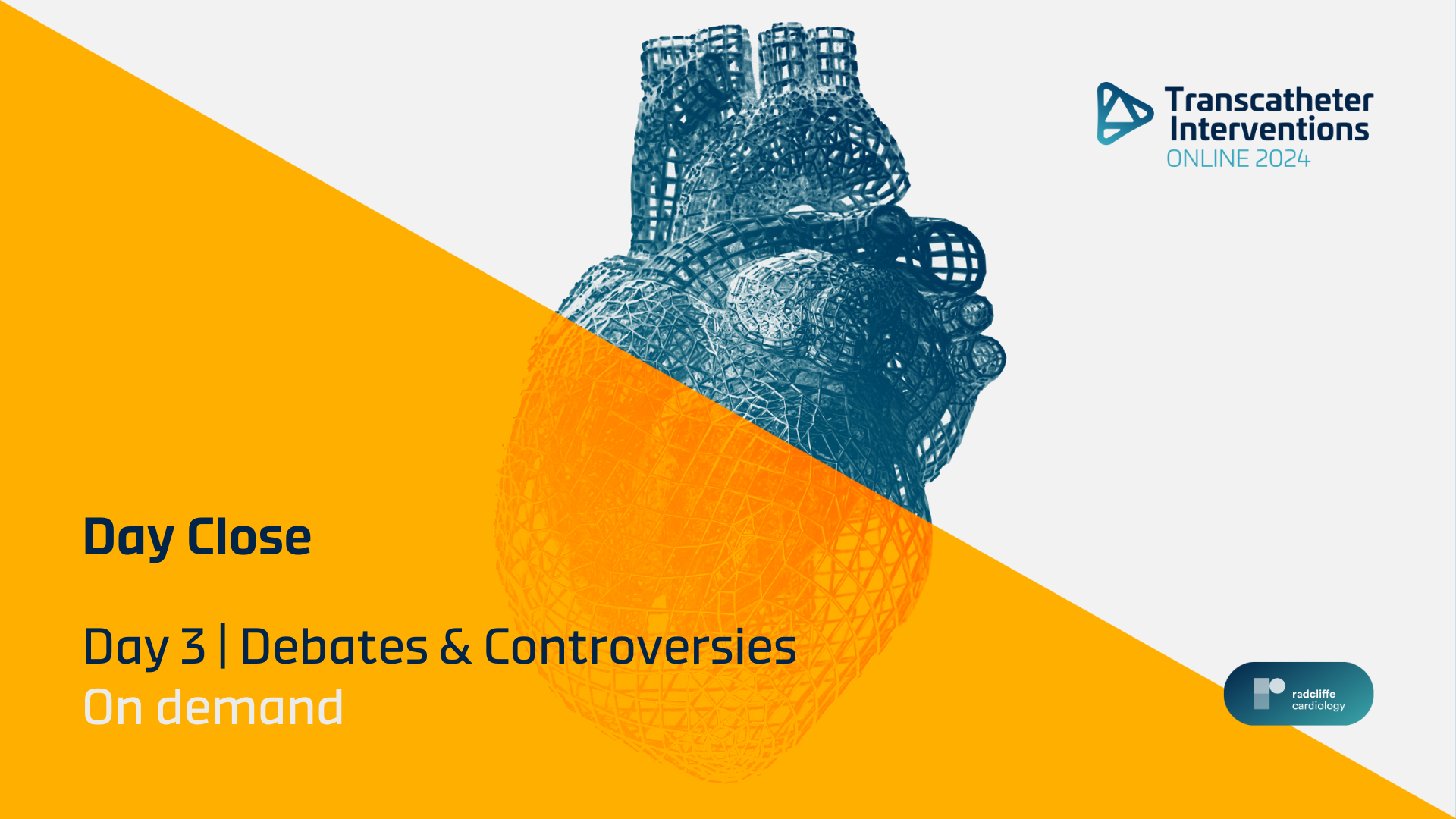 4m 16sPart 3 | Session 5 Day Three Close
4m 16sPart 3 | Session 5 Day Three Close
-
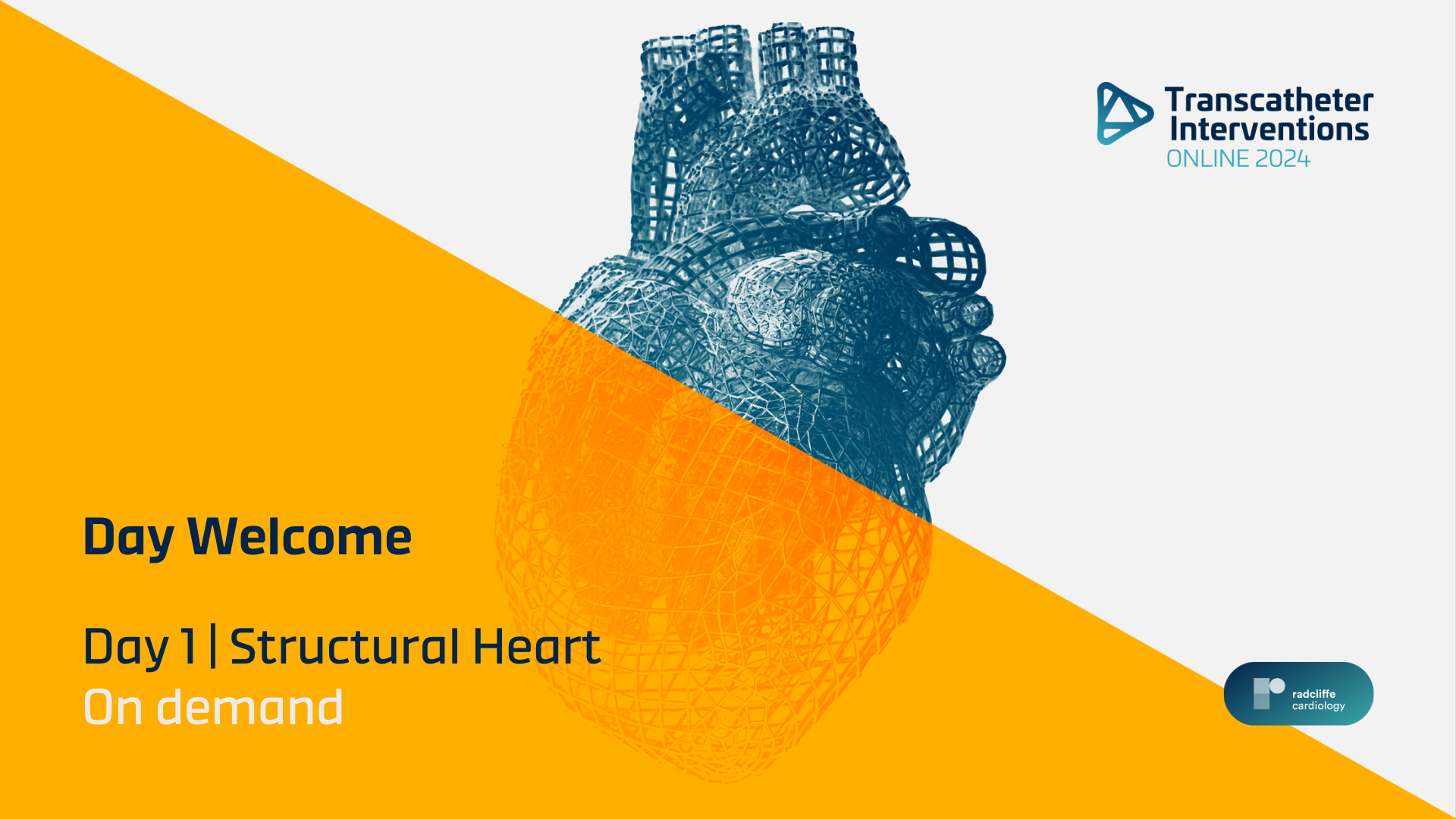 3m 36sPart 1 | Session 1 Day Welcome: Structural Heart Disease Nicolas M Van Mieghem, Kendra J Grubb, Roxana Mehran, Ajay J Kirtane, David Hildick-Smith, Holger Thiele
3m 36sPart 1 | Session 1 Day Welcome: Structural Heart Disease Nicolas M Van Mieghem, Kendra J Grubb, Roxana Mehran, Ajay J Kirtane, David Hildick-Smith, Holger Thiele
Overview
TIO 2024 brought together an outstanding international faculty, creating an unparalleled interactive experience that will keep the global interventional cardiology community up-to-date with the latest advancements in transcatheter treatment strategies. Featuring a combination of expert opinions, engaging discussions, insightful presentations and live cases from prominent medical centres on both sides of the Atlantic, TIO delivered the highest-quality CME-accredited education.
Related Content:
Key Learning Objectives
- Review planning and valve selection strategies in patients with prior valve failure
- Summarise recent repair and replacement data in mitral and tricuspid regurgitation
- Select suitable tools for undertaking PCI in calcified lesions
- Optimise use of imaging in daily practice
- Outline the pros and cons of using P2Y12 inhibitors universally following PCI
- Identify situations where an IVUS or OCT-guided approach are preferable
- Discuss the possible implications of TAVR becoming a care option in asymptomatic aortic stenosis
Target Audience
- Interventional Cardiologists
- Surgeons with an interest in transcatheter treatment strategies for coronary and structural heart disease
- Interventional Cardiology Nurses
More from this programme
Part 1
Day One: Structural Heart Disease
Part 2
Day Two: Complex PCI
Part 3
Day Three: Debates & Controversies
Faculty Biographies
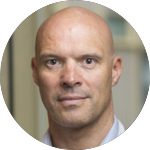
Nicolas M Van Mieghem
Medical Director
Prof Nicolas Maria Van Mieghem is an Interventional cardiologist at Thoraxcenter, Erasmus MC, Rotterdam, NL decided to pursue a career that would help others. “I enjoy the feeling of being able to help someone or do something important for them". His father was a general cardiologist and one of his biggest influences early in his career.
Prof Van Mieghem initially intended to train as a cardiac surgeon but decided to specialise in interventional cardiology instead, following advice from a mentor. This decision was cemented when he read the first-in-human case report of transcatheter aortic valve implantation (TAVI) in Circulation by Alain Cribier in 2002. Prof Van Mieghem believes that great cardiologist genuinely cares for their patients. He names Gary Roubin, Dr Manu Malbrain and Professor Patrick Serruys among his mentors.
His current research focuses on cerebral embolic protection during TAVI and the search for improved…

Ole De Backer
Interventional Cardiologist
Prof Ole De Backer is an internationally renowned interventional cardiologist working at Rigshospitalet, Copenhagen University Hospital, Denmark and is an expert in structural heart interventions – among others transcatheter heart valve interventions, percutaneous left atrial appendage closure and thoracic endovascular aortic repair. Special areas of interest are the development and adoption of a fully percutaneous, minimal invasive approach for different structural heart interventions and the use of advanced cardiac imaging tools for planning and guidance of these interventions. He is actively involved and leading several research projects in the field of transcatheter heart valves and percutaneous left atrial appendage closure.

Kendra J Grubb
Surgical Director
Dr Kendra Grubb is the surgical director of the Emory Structural Heart and Valve Center. She is also an associate professor of surgery at Emory University School of Medicine.
Kendra is a champion for women's heart disease and is dedicated to improving the lives of all patients through innovation, collaboration and a patient-centred approach to the treatment of cardiovascular disease.
Her clinical interests include valve repair or replacement, coronary artery bypass graft surgery (CABG), transcatheter aortic valve replacement (TAVR) and hybrid coronary revascularization.
Dr Grubb research interests are innovative cardiac surgery technologies. She has led and participated in multiple clinical trials of innovative cardiac surgery technologies, including studies of transcatheter aortic valve replacement (TAVR), MitraClip percutaneous therapy and the GORE® conformable TAG® thoracic endoprosthesis for the primary treatment of…
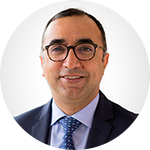
Azeem Latib
Section Head of Interventional Cardiology
Dr Mohamed Azeem Latib is a world-leading expert in Interventional Cardiology. Dr Latib is the Section Head and Director of Interventional Cardiology as well as the Director of Structural Heart Interventions at the Montefiore-Einstein Center for Heart and Vascular Care.
He is an editorial board member of Interventional Cardiology: Reviews, Research, Resources (ICR3).
His focus is on complex coronary interventions as well as transcatheter aortic, mitral and tricuspid interventions. His main clinical interests include Complex Coronary Interventions, Structural Heart Disease and New Device Innovation. He has extensive clinical experience in TAVR and MitraClip, as well as expertise in novel and new devices to treat mitral and tricuspid valve disease minimally invasively without open-heart surgery.
Dr Latib is currently involved in the development of the NeoChord NeXuS Transcatheter Mitral Chordal…

Didier Tchétché
Didier Tchétché, (Clinique Pasteur, Toulouse, France) Graduated from the University of Paris V where Dr Tchétché obtained his post-graduate diploma of cardiovascular pathology in 2004. From 2004 to 2005, he completed a 12-month fellowship period in the Hemodynamic and Interventional Cardiology department of Clinique Pasteur in Toulouse and from 2005 to 2007 he was Head Assistant at the intensive care unit of Bichât Hospital in Paris.
In 2008, he joined the interventional cardiovascular group in Clinique Pasteur, Toulouse, and he is currently Head of the Structural programme with an experience of more than 5000 TAVI procedures. His main areas of interest are coronary interventions and valvular heart disease. He has been actively involved in many clinical trials involving new technologies and devices in the field of interventional cardiology.






Comments